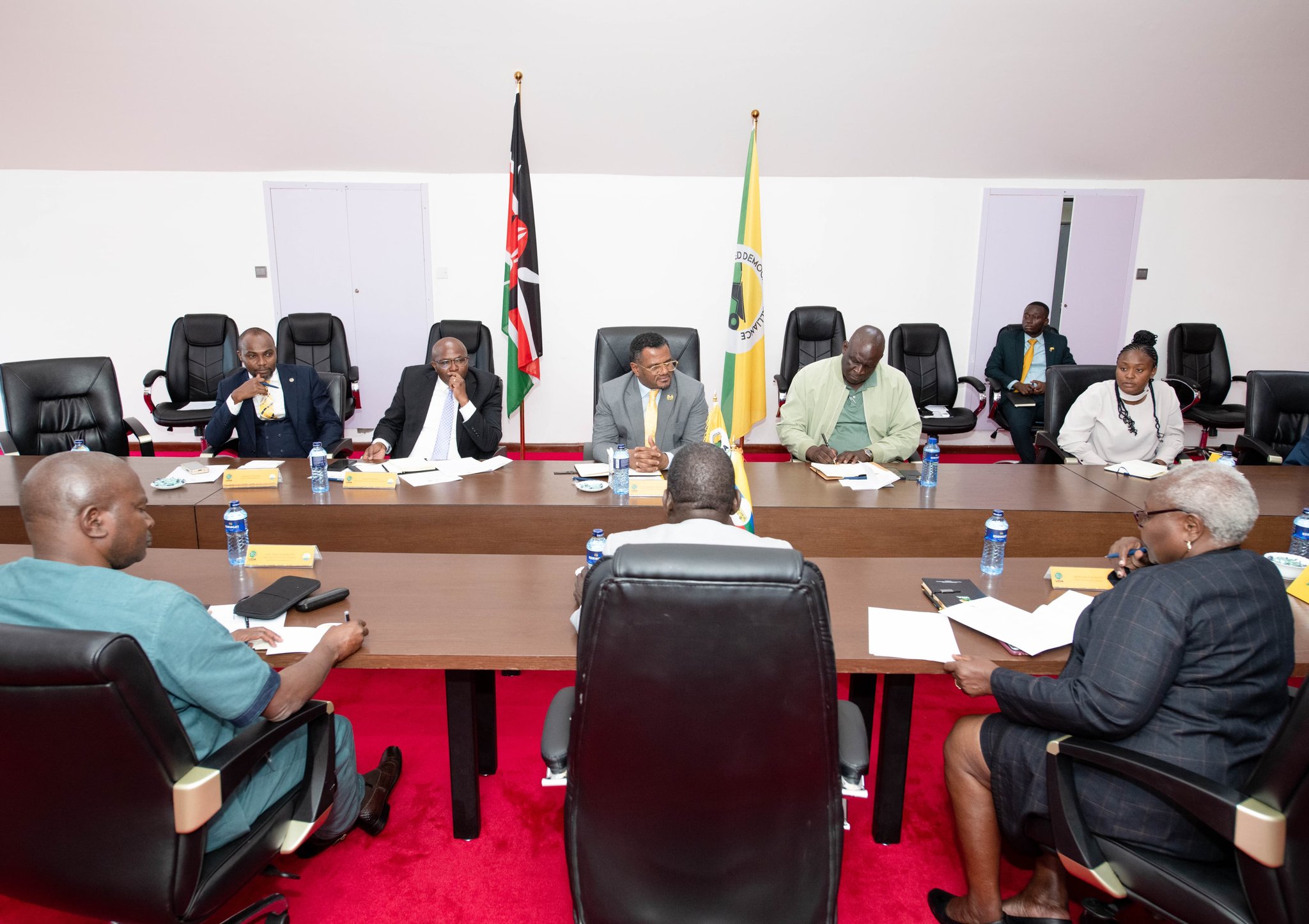
UDA, NRM endorse coordinated pursuit of foreign policy interests » Capital News
NAIROBI, Kenya, May 10 — Kenya’s ruling United Democratic Alliance (UDA) and Uganda’s National Resistance Movement (NRM) have agreed to pursue a more coordinated approach to foreign policy and deepen political cooperation between the two countries.
The development comes as Kenya recalibrates its foreign policy coordination to fall under the security sector budget, signaling a strategic shift aimed at aligning diplomacy with national security priorities.
The UDA–NRM agreement followed high-level talks held at UDA headquarters, Hustler Plaza, in Nairobi on Saturday.
In a joint communiqué signed by UDA Secretary General Hassan Omar Hassan and his NRM counterpart Richard Todwong, the two parties committed to aligning positions on regional and global issues, advocating for a harmonized foreign policy that safeguards national interests while embracing strategic international partnerships.
“Both parties agreed to pursue a coordinated approach to foreign policy, safeguarding national interests while fostering international partnerships, which we consider key priorities of our nationhood,” the communiqué read.
The two parties reached a consensus on six key areas, including legislative collaboration, economic empowerment, social harmony, and upholding the rule of law.
Discussions were anchored in what was described as a “spirit of solidarity and shared commitment” to the prosperity and stability of both nations.
“Recognizing the profound challenges and opportunities facing our countries, the two parties reaffirmed their dedication to unity, stability, and democratic governance,” the parties stated.
Among the highlights was a joint pledge to promote good governance through transparency, accountability, and the strengthening of democratic institutions—core principles seen as critical to restoring public trust.
On the economic front, the NRM delegation lauded Kenya’s Bottom-Up Economic Transformation Agenda (BETA), particularly the structure and work of the Presidential Economic Council, calling it a model for people-driven empowerment.
Revised foreign policy
The parties also agreed to promote social cohesion and reject divisive politics, with an emphasis on safeguarding citizens’ rights and fostering national unity.
Both sides resolved to hold regular consultations to assess progress and expand their collaboration.
This renewed bilateral engagement coincides with a policy shift by President William Ruto’s administration following the unveiling of a 10-year blueprint.
In January, the government announced that the coordination of foreign affairs would now be anchored under the security sector budget, following the Cabinet’s approval of the revised Kenya Foreign Policy 2024.
The new policy framework, endorsed by the Cabinet, proposes institutional changes to strengthen Kenya’s diplomatic and security posture.
According to the Ministry of Foreign Affairs, the revised policy aims to protect national interests while enhancing Kenya’s relationships with key international partners.
A central goal of the revised policy is to streamline coordination between Kenya’s diplomatic and security institutions, ensuring that foreign relations directly support the country’s security and economic objectives.
The shift also reflects Kenya’s growing role in regional peacekeeping and conflict resolution efforts, including greater participation in African Union missions and other regional initiatives aimed at stabilizing the continent.
President Ruto commended the revised policy, emphasizing that Kenya’s economic transformation hinges on forward-looking diplomacy.
“At its core, Kenya’s foreign policy is not just about managing international relations. It is about shaping our destiny—both present and future—in alignment with national interests,” Ruto stated.